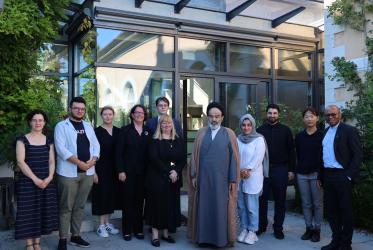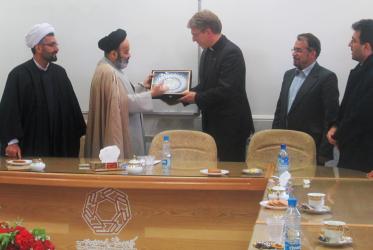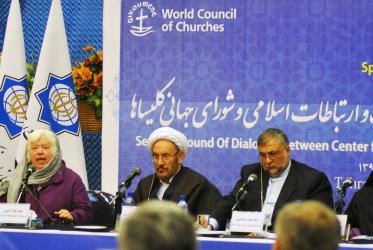Displaying 1 - 13 of 13
Peace is common denominator of all major religions
05 March 2019
Dialogue on sacred texts yields peace-building insights
31 August 2017
WCC general secretary conveys message of “justice and peace” in Iran
24 February 2014







